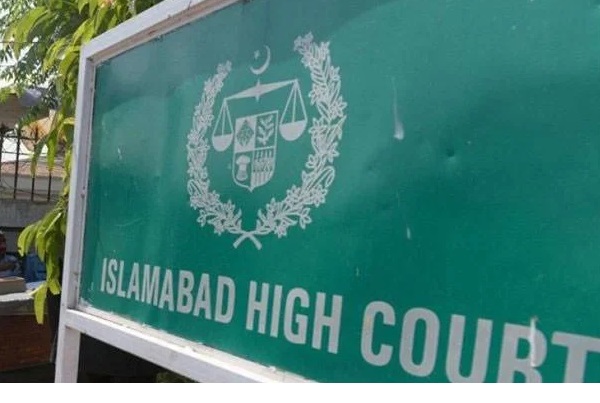Sustainable architecture is a design approach that seeks to minimize buildings' negative environmental impact by maximizing efficiency and moderation
ISLAMABAD: The Islamabad High Court (IHC) on Monday reserved judgement on PTI Chairman Imran Khan’s pleas for post-arrest bail and the cancellation of an FIR registered against him in the cipher case.
Separately, the court also disposed of Mr Khan’s plea against a jail trial in the cipher case.
IHC Chief Justice Aamer Farooq observed that since the ex-premier’s legal team had consistently expressed concerns over his security during court appearances, prima facie, the decision for his trial inside the prison “was not malafide”, as pleaded by Mr Khan.
The IHC CJ, however, asked Mr Khan to approach the trial court concerned for redressal of his grievances.
IHC CJ Farooq ‘disposes of’ petition against jail trial; PTI chief’s lawyer claims taxpayers’ money being used to suppress their party
The court reserved the verdict after the prosecution, and Mr Khan’s lawyers concluded their arguments on both petitions.
The counsel for Mr Khan, Sardar Latif Khosa, said an FIR could not be registered against his client since the federal cabinet of former prime minister Imran Khan has already declassified the cipher.
He claimed Mr Khan enjoyed immunity as provided in Article 248 of the Constitution that protects the president, governor, prime minister, federal minister, minister of state, chief minister and provincial minister for their “act done or purported to be done.”
Article 248(1) states that the officials mentioned above “shall not be answerable to any court for the exercise of powers and performance of functions of their respective offices or for any act done or purported to be done in the exercise of those powers and performance of those functions”.
Earlier, another counsel for Mr Khan, Barrister Salman Safdar, argued that Section 5 of the Official Secrets Act was not applicable in the cipher case.
He said that the section could be invoked for sharing sensitive information with foreigners, and this “main ingredient is missing” in the FIR against Mr Khan.
The act focuses on armed forces and could be invoked for sharing information with the enemy state, according to Mr Safdar, who argued that military courts tried suspects booked under this law in the past.
“This is the first time in the history of Pakistan that an ex-prime minister and foreign minister are being tried under this act.”
The prosecution unnecessarily dragged Mr Khan and Shah Mehmood Qureshi into the case by expanding the scope of the law, argued Mr Sadfar.
When Mr Safdar said the relevant ministry in the case of cipher was foreign affairs, but the interior secretary lodged the FIR, the special prosecutor replied that the federal government authorised the official to file the complaint.
Raja Rizwan Abbasi argued the FIR could not be quashed as Mr Khan has admitted the alleged crime and never denied the allegations of sharing sensitive information with unauthorised persons.
The cipher was entrusted to him in confidence by virtue of his office, and the former PM “wrongfully communicated the contents for vested interest”.
The prosecutor went on to state that Pakistan’s then-ambassador to the US, Asad Majeed, sent a cipher, and the foreign affairs secretary declared it classified.
In response to Mr Khosa’s argument that the cabinet had already declassified the document, the prosecutor informed the court that “there is nothing on record” about the declassification of the secret document.
Only the authority which declared the document “classified” was authorised to declassify it.
Explaining the chain of events, Mr Abbasi said the cipher assistant at the Ministry of Foreign Affairs, decoded the document.
He sent it to deputy director Imran Sajid, from where it was forwarded to another deputy secretary, Haseeb Bin Aziz, for onward submission to the then-foreign secretary Sohail Mehmood.
Mr Mehmood forwarded copies of the cipher to the PM, foreign minister, chief of army staff and ISI DG after assigning it a unique code.
The cipher officer in the PM Office, Shamoon Qaiser, received the document from the ministry and sent it to deputy secretary Haseeb Gohar.
After passing through the desk of another deputy secretary, it finally landed in the office of the then-principal secretary to PM Azam Khan, the prosecutor claimed.
Mr Azam had already testified before an investigation team and dispelled the impression that the statement was recorded under duress.
Regarding immunity under Article 248 for Mr Khan, as claimed by his lawyers, the prosecutor argued that “there is not a single word about immunity in criminal proceedings”.
Only presidents and governors are exempted from court proceedings while in office.
You May Also Like
ISLAMABAD: The ruling Pakistan Muslim League Nawaz (PMLN) emerged victorious on most seats in the by-elections, according to
SYRIA: Rockets were fired late Sunday from northern Iraq at a military base in Syria housing a US-led coalition, according to Iraqi security






